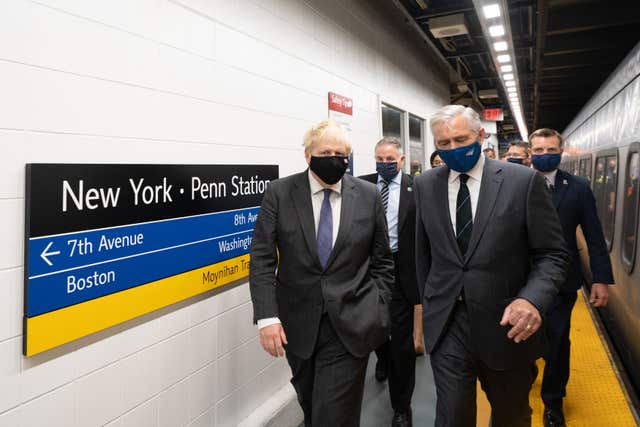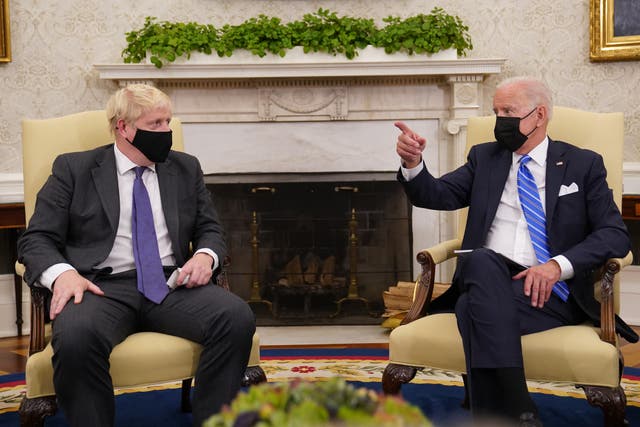
Boris Johnson’s trip to the White House – his first as Prime Minister – came at a tense time for the so-called special relationship between the UK and its closest ally.
Against a backdrop of the tricky withdrawal from Afghanistan – which the PM admitted may have been handled differently – and as he aimed to bag promises of a trade deal with Joe Biden, the scene was very different to that of the last time a UK prime minister visited the White House.
In 2017, it was Theresa May holding hands with Donald Trump. Now, in 2021, it is Mr Johnson and President Biden in the Oval Office.
Mr Johnson has had some big wins on his trip to the US – a lifting of the US travel ban for double-vaccinated Britons is understood to have taken even No 10 by surprise.
The PM proclaimed the relationship between the two countries as “about as good as they have been at any time in decades”.
There was an agreement to scrap an import ban on lamb.
The pair shared their love of trains, with Mr Johnson and Foreign Secretary Liz Truss travelling on Amtrak. Mr Johnson said of the President: “He’s a bit of a train nut, as am I.”
Back home, people have been panicking about whether they can buy a weekly shop from empty shelves or pay their energy bills.
Mr Johnson addressed the energy crisis in interviews with British media while American broadcaster NBC finally pinned down an answer on how many children Mr Johnson has – six.

However, Mr Johnson will not return to Downing Street with all he wanted.
For all the success, a free trade deal for which President Trump had promised Britain was at “the front of the queue” has not materialised.
After more than 90 minutes of talks with the president in the White House, the Prime Minister conceded on Wednesday he is currently looking to make only “incremental steps” to trading with the States.
Tensions over post-Brexit arrangements in Northern Ireland remain, with President Biden, who has been vocally proud of his Irish heritage, saying he feels “very strongly” about the issues surrounding the peace process, as problems with the Northern Ireland Protocol persisted.
“I would not at all like to see, nor I might add would many of my Republican colleagues like to see, a change in the Irish accords, the end result having a closed border in Ireland,” he said.

One big area of agreement, however, was on climate change.
Mr Johnson and President Biden are on the same page on tackling the issue, the thrust of Mr Johnson’s agenda-setting speech to the United Nations General Assembly in New York.
President Biden agreed to pledge billions more a year to the 100 billion US dollar (£73 billion) climate aid fund ahead of Cop26 in November.
He said he would head to the Glasgow summit “with bells on” and as Mr Johnson’s speech calls for unity, he will be hoping he also found that with the President.
In a trip that was seen as a chance to strengthen transatlantic ties after a rough summer, Mr Johnson may breathe a sigh of relief at the gains made and united front presented.
But the gaping hole left by the lack of a trade deal is likely to resurface as a sticking point unlikely to be solved any time soon.


Comments: Our rules
We want our comments to be a lively and valuable part of our community - a place where readers can debate and engage with the most important local issues. The ability to comment on our stories is a privilege, not a right, however, and that privilege may be withdrawn if it is abused or misused.
Please report any comments that break our rules.
Read the rules hereLast Updated:
Report this comment Cancel